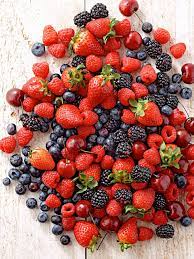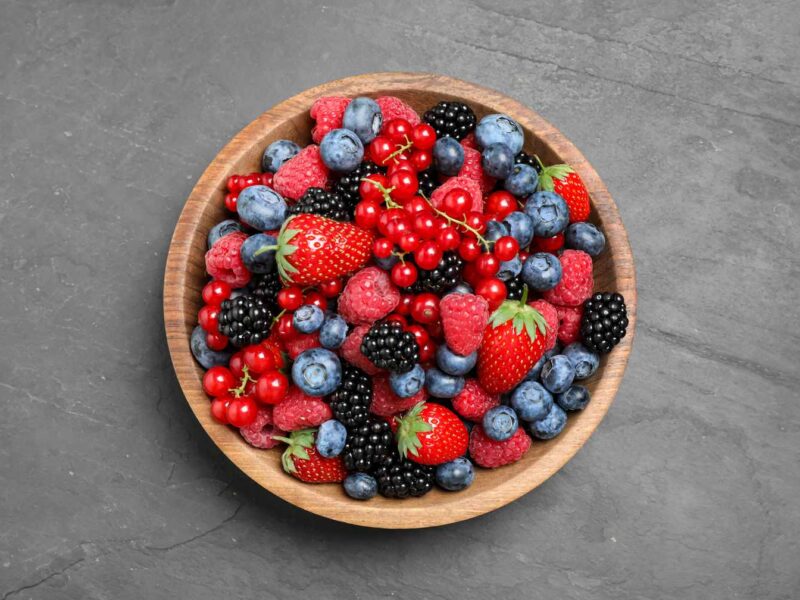Berries, with their vibrant colours and tantalizing flavours, have long been celebrated as nutritional powerhouses. Among their many health benefits, berries stand out for their remarkable antioxidant content, which plays a crucial role in promoting cardiovascular health and managing conditions such as hypertension.
In this exploration, we delve into the science behind berries as antioxidant-rich superfoods for hypertension, examining their nutritional profile, health benefits, and ways to incorporate them into a heart-healthy diet.
Understanding Hypertension
Hypertension, commonly known as high blood pressure, is a prevalent health condition characterised by elevated blood pressure levels. Left untreated, hypertension can lead to serious complications such as heart disease, stroke, and kidney failure.
Lifestyle factors, including diet, exercise, and stress management, play a significant role in managing blood pressure levels. Incorporating antioxidant-rich foods like berries into one’s diet can be an effective strategy for reducing oxidative stress and supporting overall cardiovascular health.
Nutritional Profile of Berries
Berries encompass a diverse range of fruits, including strawberries, blueberries, raspberries, blackberries, and cranberries, each offering its unique blend of nutrients and antioxidants. Despite their differences in taste and appearance, berries share common nutritional characteristics that contribute to their health-promoting properties. Berries are low in calories and rich in dietary fibre, vitamins, minerals, and bioactive compounds such as polyphenols and flavonoids, which act as potent antioxidants.
Antioxidants and Cardiovascular Health
Antioxidants are compounds that neutralize harmful free radicals in the body, thereby reducing oxidative stress and inflammation. Oxidative stress plays a significant role in the development and progression of cardiovascular diseases, including hypertension. By scavenging free radicals and protecting against oxidative damage, antioxidants help maintain the health and function of blood vessels, thereby supporting healthy blood pressure levels.
Specific Antioxidants in Berries

Berries are particularly rich in a class of antioxidants known as polyphenols, which have been extensively studied for their cardiovascular benefits. Anthocyanins, a type of flavonoid responsible for the vibrant colours of many berries, are among the most abundant polyphenols in berries.
Anthocyanins exhibit potent antioxidant and anti-inflammatory properties, which can help improve endothelial function, reduce arterial stiffness, and lower blood pressure. Additionally, berries contain other antioxidants such as vitamin C, vitamin E, and ellagic acid, all of which contribute to their cardiovascular health benefits.
Scientific Evidence Supporting Berry Consumption for Hypertension
Numerous studies have investigated the effects of berry consumption on blood pressure regulation and cardiovascular health. A systematic review and meta-analysis published in the American Journal of Clinical Nutrition examined the impact of berry consumption on blood pressure in both healthy individuals and those with hypertension.
The review concluded that berry consumption was associated with significant reductions in both systolic and diastolic blood pressure levels, particularly in individuals with elevated blood pressure.
Mechanisms of Action
The beneficial effects of berries on blood pressure regulation are attributed to their diverse array of bioactive compounds and their interactions with various physiological pathways. Anthocyanins and other polyphenols in berries exert vasodilatory effects, helping to relax blood vessels and improve blood flow.
Additionally, these compounds have been shown to enhance nitric oxide production, a key signalling molecule involved in blood pressure regulation. Furthermore, the anti-inflammatory properties of berries may help reduce vascular inflammation and stiffness, contributing to lower blood pressure levels.
Incorporating Berries into a Heart-Healthy Diet
Including berries in your diet is easy and delicious, as they can be enjoyed fresh, frozen, or dried, and incorporated into a variety of dishes. Here are some simple ways to incorporate berries into a heart-healthy diet:
- Smoothies: Blend fresh or frozen berries with yoghurt, leafy greens, and a splash of almond milk for a nutritious and refreshing smoothie.
- Oatmeal: Top your morning bowl of oatmeal with a handful of fresh berries for added sweetness and antioxidant power.
- Salads: Toss mixed berries into salads for a burst of colour and flavour, paired with leafy greens, nuts, and a balsamic vinaigrette.
- Snacks: Enjoy berries as a convenient and portable snack on their own or paired with nuts or cheese for a satisfying treat.
- Desserts: Use berries to create healthier dessert options, such as berry parfaits, fruit salads, or mixed berry crumbles with oat topping.
Conclusion
Berries are antioxidant-rich superfoods that offer a myriad of health benefits, including support for cardiovascular health and blood pressure management. With its abundance of polyphenols, vitamins, and minerals, berries are a delicious and nutritious addition to any heart-healthy diet.
By regularly incorporating berries into your meals and snacks, you can harness their antioxidant power to promote optimal cardiovascular function and reduce the risk of hypertension-related complications. Embrace the bounty of nature’s superfoods and savour the vibrant flavours and colours of berries for a healthier heart and a happier life.










